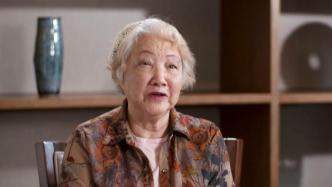
This year marks the 100th anniversary of the birth of Chinese film director Xie Jin (1923-2008). In order to commemorate and commemorate this outstanding and far-reaching film master, the China Film Archive has joined hands with Shanghai Film (Group) Co., Ltd. to specially plan the "Xie Jin Centenary Birth Commemorative Exhibition", which will be held from November 21st to December 29th. , screening 17 films created by Xie Jin at art cinemas.

Xie Jin
According to reports, the works to be screened in this commemorative exhibition involve various stages of Xie Jin’s creative career, and the age of his works spans nearly half a century. Among them, there are "Two Hundred and Five Stories", "A Few Storms" and "The Feathered Letter" for which Xie Jin served as assistant director and deputy director, "The Accusation" and "A Storm" for which Xie Jin served as co-director, as well as the early years after Xie Jin independently directed His representative works include "Blue Bridge Club", "Women's Basketball Team No. 5", "The Red Detachment of Women", "Big Li, Xiao Li and Old Li", "Stage Sisters", biographical films depicting real-life characters such as "Huang Baomei" and "Qiu Jin", and "reflective films". "The Legend of Tianyun Mountain", "The Wrangler", as well as the director's later masterpieces "The Last Noble", "The Bells of Qingliang Temple" and "The Opium War".
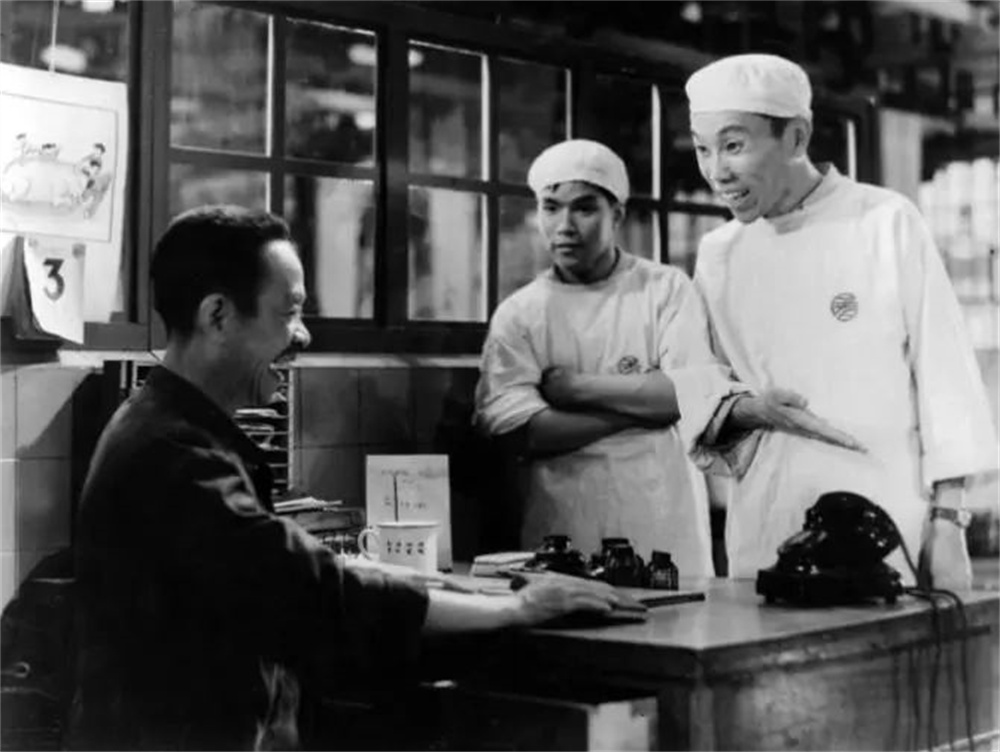
Stills from "Big Li, Xiao Li and Old Li"
The opening event of the film festival will be held before the screening of "Big Li, Xiao Li and Old Li" on November 21, which is the birthday of director Xie Jin. It is worth mentioning that as the opening film of the entire commemorative exhibition, the version shown this time of "Big Li, Xiao Li and Old Li" is the original Shanghainese version (with subtitles) of many unknown films today. It is also reported that "The Feathered Letter", "Women's Basketball No. 5", "Red Detachment of Women", "Big Li, Xiao Li and Old Li", "Stage Sisters", "Huang Baomei", "Legend of Tianyun Mountain", "Wrangler" and "Qingliang Temple Bells" "9 works are all restored versions, and "Women's Basketball No. 5" is a 4K restored version. Film festival tickets will go on sale at 12 noon on Friday, November 17th.
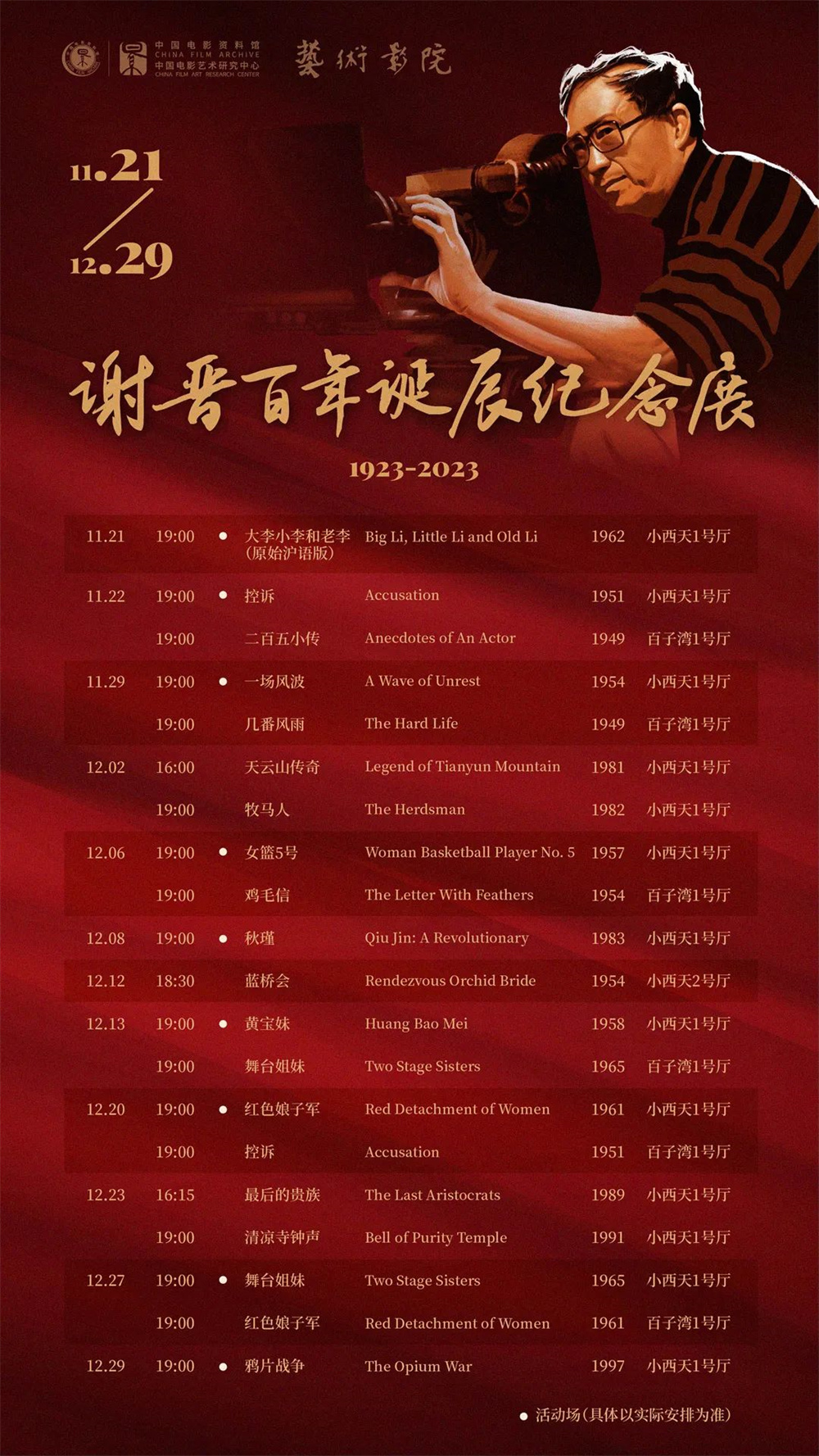
Schedule
Studying art and studying film, the collection of "The Accusation" is open to the public for film viewing for the first time
Xie Jin was born in Shangyu, Shaoxing City, Zhejiang Province in 1923. The Xie family comes from a scholarly family and grew up under the influence of culture. As a child, Xie Jin loved reading and watching theater. When he was eight years old, Xie Jin moved to Shanghai with his parents. At that time, Shanghai was the core city of movies in China, and nascent movies were also the most novel and popular thing of that era.
During the war, Xie Jin continued his studies in many places, participated in student drama activities, and applied for drama school despite his parents' objections. At Sichuan Jiang'an National Drama College, Xie Jin studied under Cao Yu, Jiao Juyin, and Ma Yanxiang, and later followed Ma Yanxiang, Hong Shen, and Jiao Juyin to work at the China Youth Drama Club in Chongqing. In 1948, Xie Jin graduated from the Directing Department of Nanjing National Drama College and joined Datong Film Company on the recommendation of Huang Zuolin. After the founding of New China, Shanghai completed the socialist transformation of private industry and commerce. Film production companies were merged and established as the state-owned Shanghai Film Studio, and Xie Jin became a member of Shanghai Film Studio.
Xie Jin's film creation also started as an assistant director, deputy director, and co-director. For example, "The Dumb Wife" directed by Wu Renzhi and "Representative of Women" directed by Chen Xihe both had young Xie Jin as assistant director. Similar to the experience of meeting bole bosom friends many times during his studies, when Xie Jin entered the workplace, most of the seniors he followed were also famous figures in the Chinese film industry at that time. Among them was Zhang Shichuan, who was the production director of Datong at the time. It is said that this Chinese film pioneer and the backbone of the first generation of film directors greatly appreciated Xie Jin after seeing his performance on the set, and enthusiastically expressed his gratitude to other directors. Recommend Xie Jin.
Among the works exhibited in this commemorative exhibition, there are three works for which Xie Jin served as assistant director: "Two Hundred and Five Short Stories" (1949), also known as "The Heroes of the Liyuan", written by Tian Han and directed by Zheng Xiaoqiu. The film started shooting in the spring of 1949 and was released after the liberation of Shanghai. It tells the story of the tragic fate and miserable life of patriotic artists under imperialist aggression. "Several Storms" (1949) was written by Hong Shen and Zhao Qingge and directed by He Zhaozhang. The film's slogan reads, "From the different experiences of three sisters, we examine the old society of cannibalism." It was a "novel and moving literary blockbuster with a novel style" at the time. "Several Storms" was selected for screening at the "World Audiovisual Heritage Day" event in 2016. This screening has been rare in the past few years and is a rare opportunity to see this work.
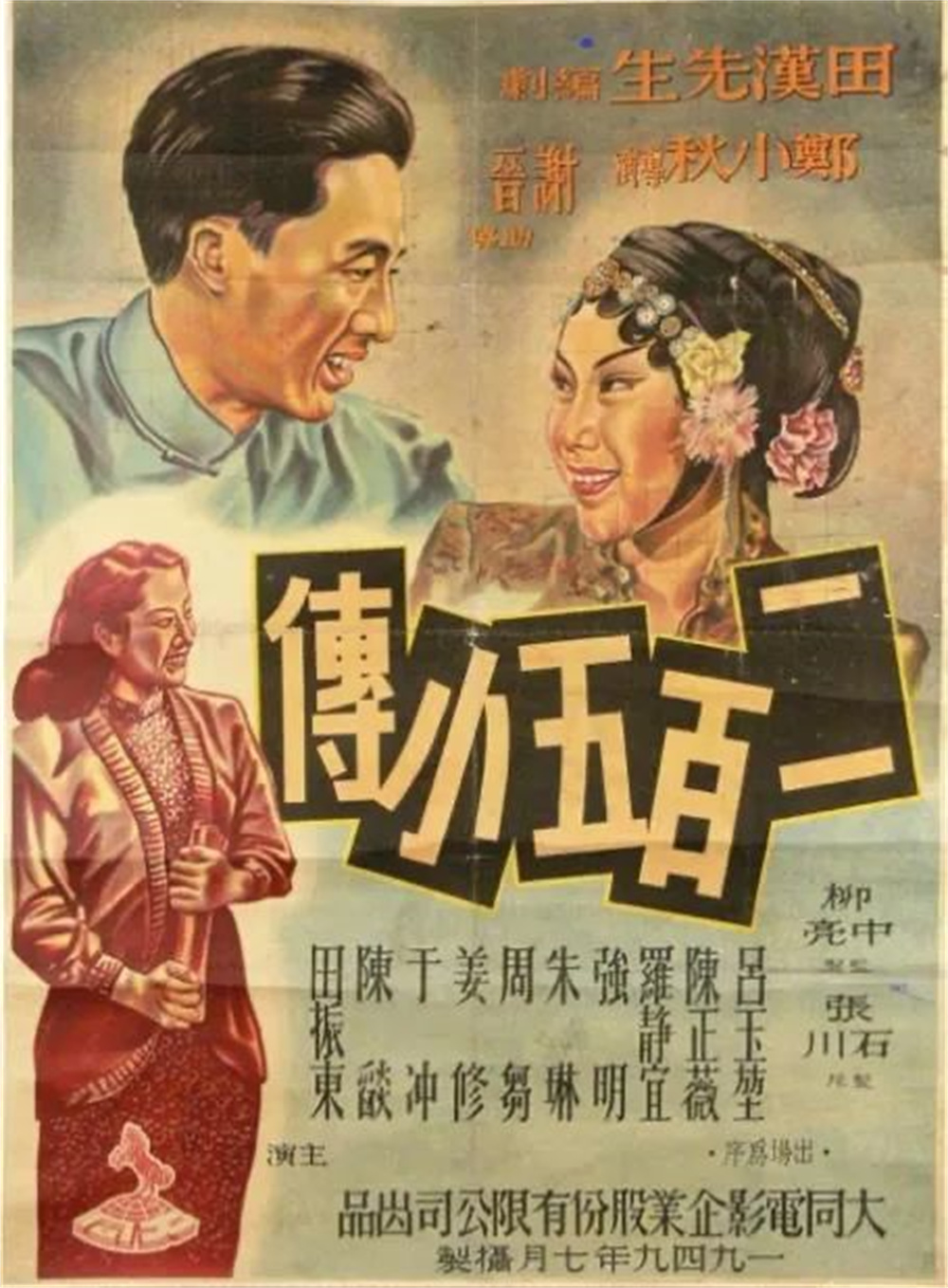
Poster of "Two Hundred and Five Short Stories"
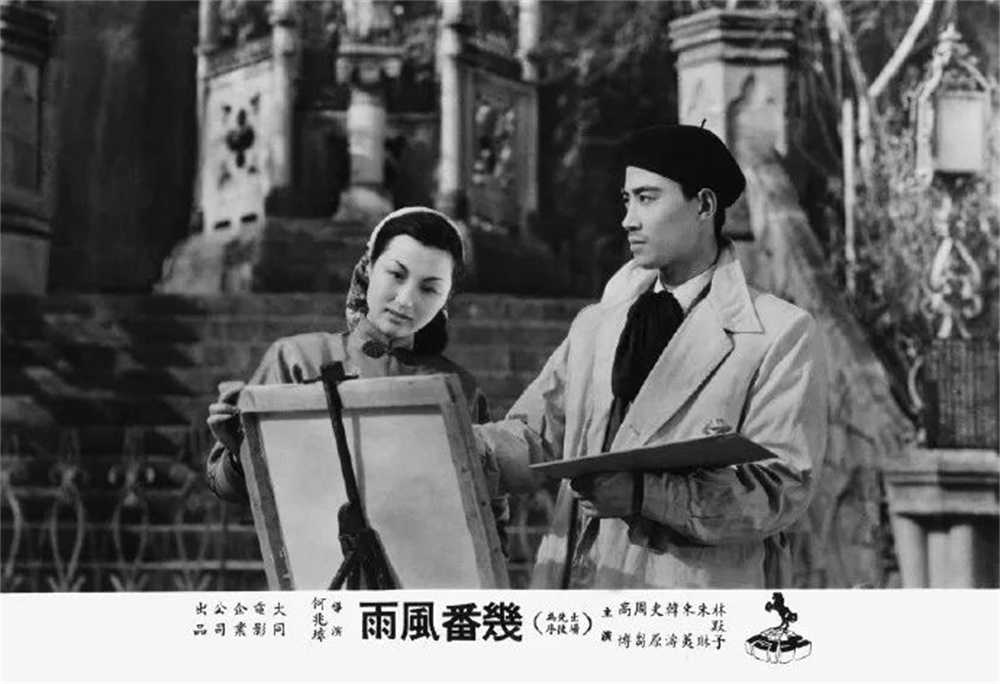
Stills from "Several Clouds and Rain"
"The Feathered Letter" (1954), with Xie Jin as assistant director, was produced by Shanghai Film Studio, written by Zhang Junxiang, directed by Shi Hui, and starring child star Cai Yuanyuan as the protagonist Haiwa. The film starts from the perspective of Haiwa, the leader of the children's group in Longmen Village, and tells the story of what happened on his way to deliver a chicken-feather letter to the Eighth Route Army. The film won the Grand Prize at the 9th Edinburgh International Film Festival in the UK and was the first children's film in New China to win an international award. The creators tried a comic-like audio-visual format to make the movie more interesting and attractive to young and children's audiences.
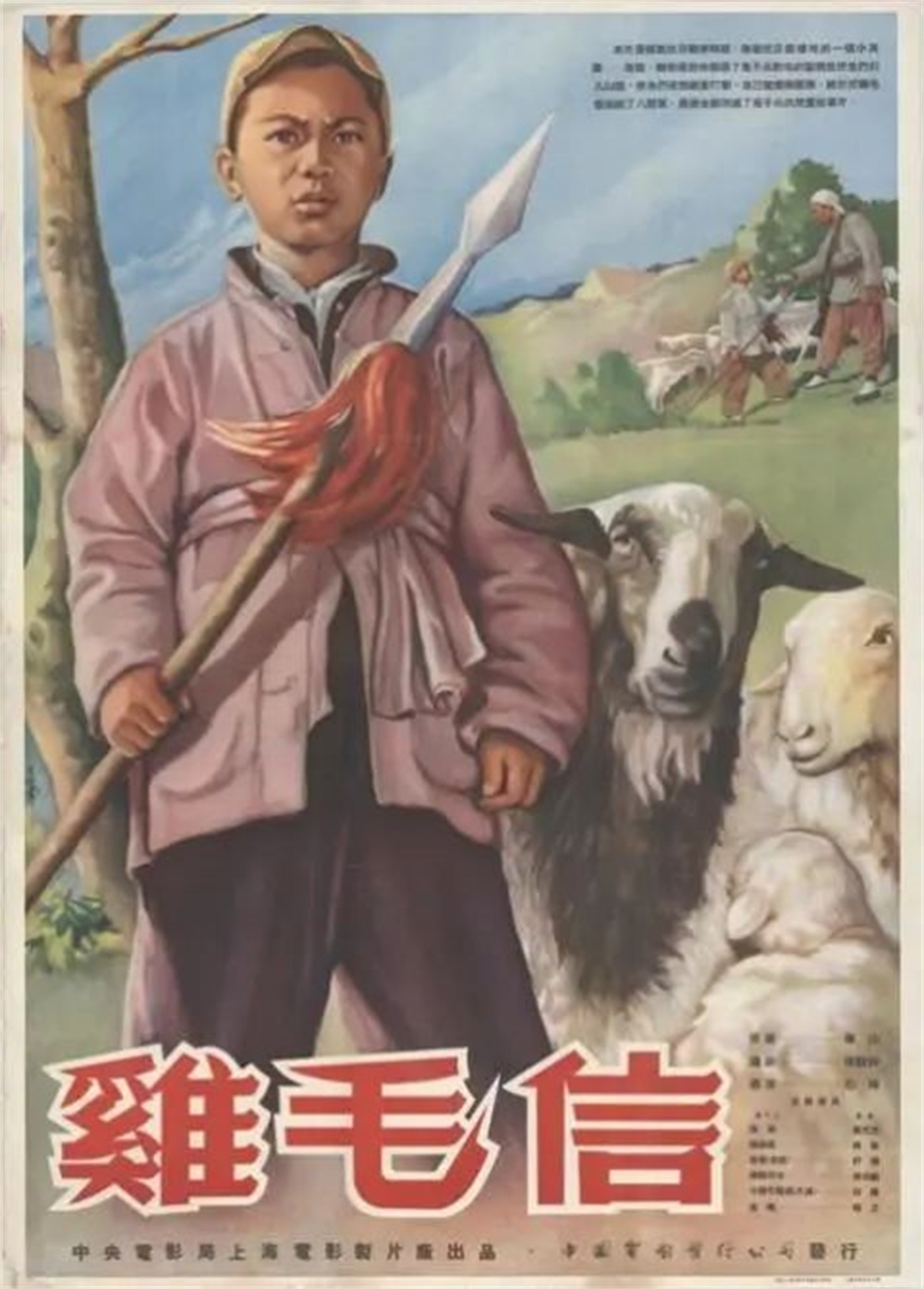
"Feather Letter" Poster
In addition to being an assistant director, Xie Jin also co-created with other directors during this period, such as "The Accusation" (1951), which he co-directed with Hu Daozuo, Xu Bingduo and Yang Cunbin. "Complaining is not complaining, but recalling the past and facing the present." The film mainly shows that during the War of Liberation, the reactionaries, with the assistance of US imperialism, carried out insidious and vicious oppression and rule against kind-hearted working people, conveying the progress of advocating national unity. Thought. The museum has never publicly screened the film "The Accusation" before. It is a precious collection that is open to the public for viewing for the first time. It is worth visiting the theater to have a glimpse of the film.
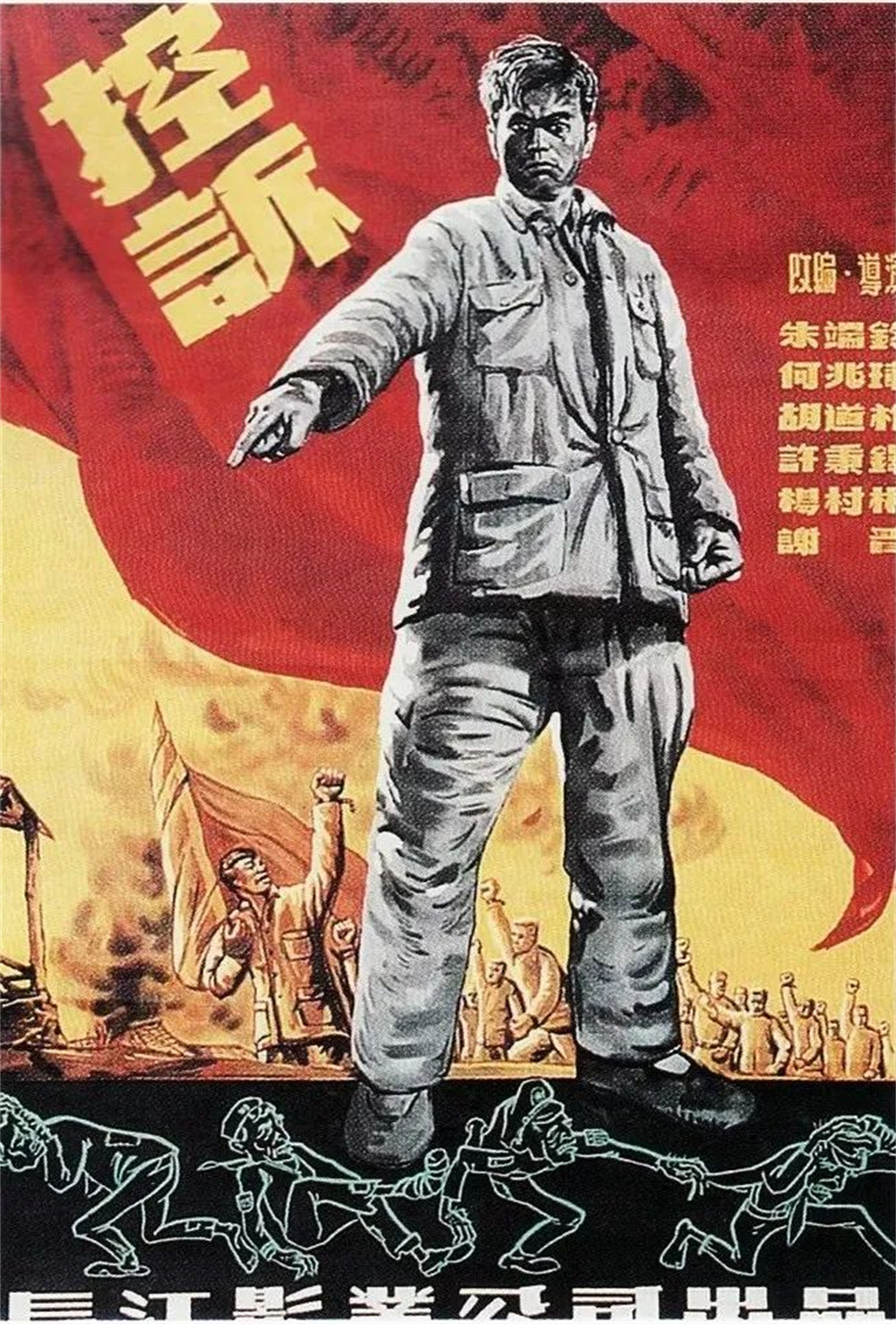
"The Accusation" poster
"A Storm" (1954) is a work co-directed by Xie Jin and Lin Nong. It is a love movie that tells the story of the love between the widow Li Fu and the single farmer Zeng Liangchen. Fumijun Karima, a professor at the University of Tokyo, believes that although this movie tells the story of the popularization of marriage laws in the 1950s, it is more like a typical Shanghai-style movie and is in the same vein as Shanghai movies in the 1930s and 1940s.
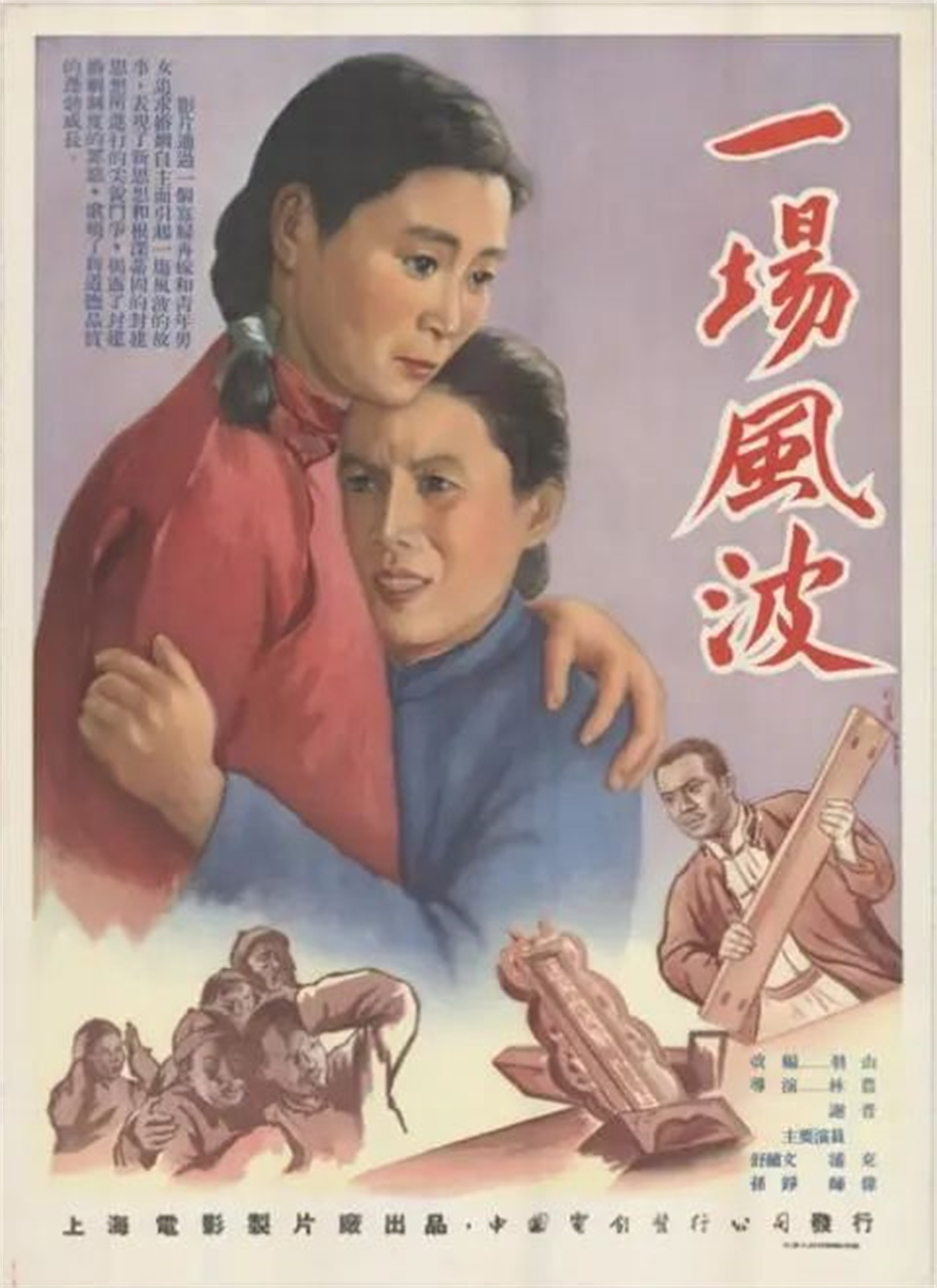
"A Storm" Poster
With the accumulation of experience and industry recognition, Xie Jin began to independently guide the company. The Huai opera drama "Blue Bridge Club" is his first independent director's work, and "Spring in the Water Town" is his first independent feature film. "Blue Bridge Club" (1954) is one of the traditional plays of Huai Opera, adapted from folklore. The plot mainly tells the love story of Wei Langbao and Jia Yuzhen, showing the sincerity and loyalty of ancient young men and women towards love and their rebellious spirit of not giving in to the situation.
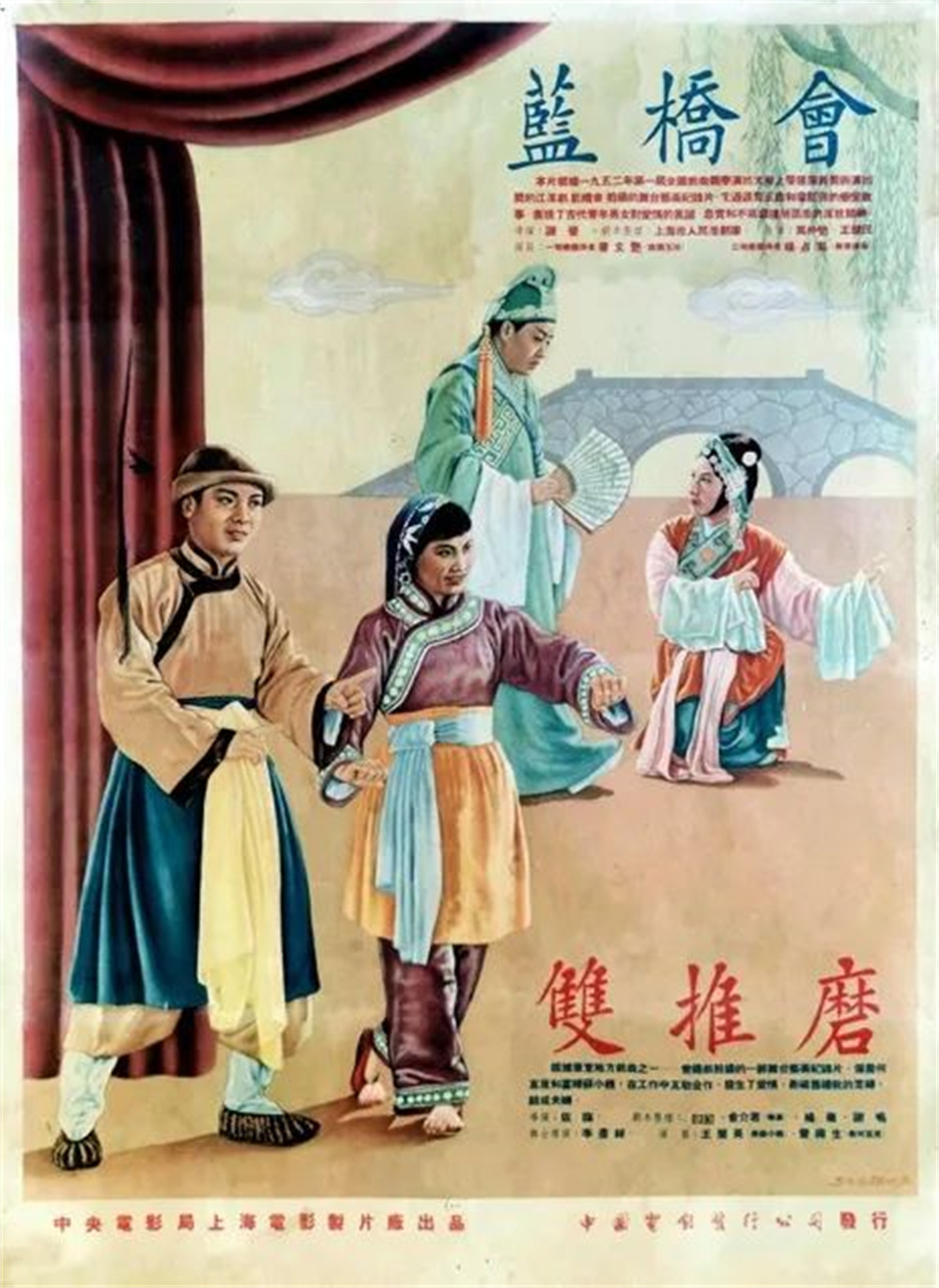
"Blue Bridge Club" poster
During this period, director Xie Jin's works had a variety of changes in subject matter, type, and form. He also tried video experiments that mixed documentary and fictional feature film techniques. "Huang Baomei" (1958) uses the real process of a writer's search for Huang Baomei as a clue to show the audience the labor performance of Huang Baomei, a technological innovation expert in Shanghai's cotton spinning system and a national model worker, who studied hard, practiced hard, and made bold innovations. The film cleverly combines the creative techniques of feature films and documentaries, and its novel narrative method demonstrates the talent of director Xie Jin.
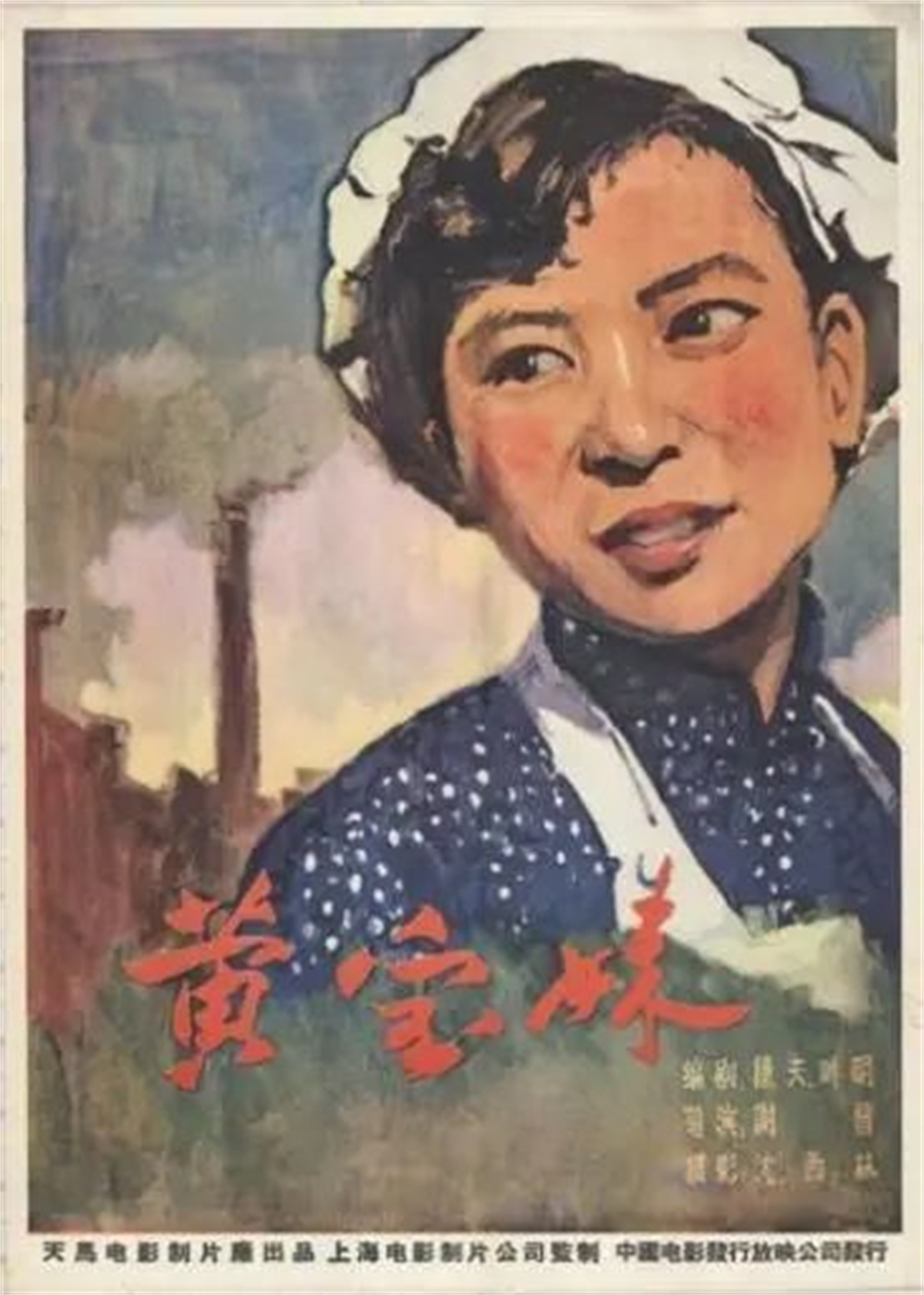
"Huang Baomei" poster
Professor Li Daoxin once commented on the impact of Xie Jin’s drama study and practice in the rear in his early years and his return to Shanghai for film activities: “After the founding of New China, Xie Jin once weaved Zheng Zhengqiu’s ethical narratives and Zhang Shichuan’s plots , Cai Chusheng's popular style, and all the nourishment he received in the "isolated island" and the Shanghai film scene, combined with his "passion" to praise New China, new life, and new political parties, he has the ability to dialogue with the world. Extraordinary abilities.”
"Female Trilogy" establishes career and becomes famous
"Women's Basketball Team No. 5" (1957, 4K restored version) is considered to be director Xie Jin's famous work. Its success marks that Xie Jin as a director is recognized and familiar with the industry and the audience. This film is the first sports-themed color feature film in the history of New China and one of the beginnings of Chinese sports movies. It won the Silver Medal at the World Youth Festival International Film Festival and the Silver Hat Award at the Mexico International Film Festival. The film's leading actors Liu Qiong and Qin Yi are experienced and popular star actors, while Cao Qiwei, who plays Lin Xiaojie, is a professional athlete in real life. The "real appearance" of non-professional actors adds a sense of reality to the film.
In response to the country’s call to “develop sports and enhance people’s physical fitness” at that time, “Women’s Basketball No. 5” linked personal destiny to the destiny of the country and the country, showing the inseparability of personal achievements and the honor of the country and the country. It is generally believed that starting from "Women's Basketball Team No. 5", director Xie Jin's creations have a clear understanding of major issues such as nation, country, revolution, love, etc. and a unique set of narrative techniques and techniques to express these major issues.
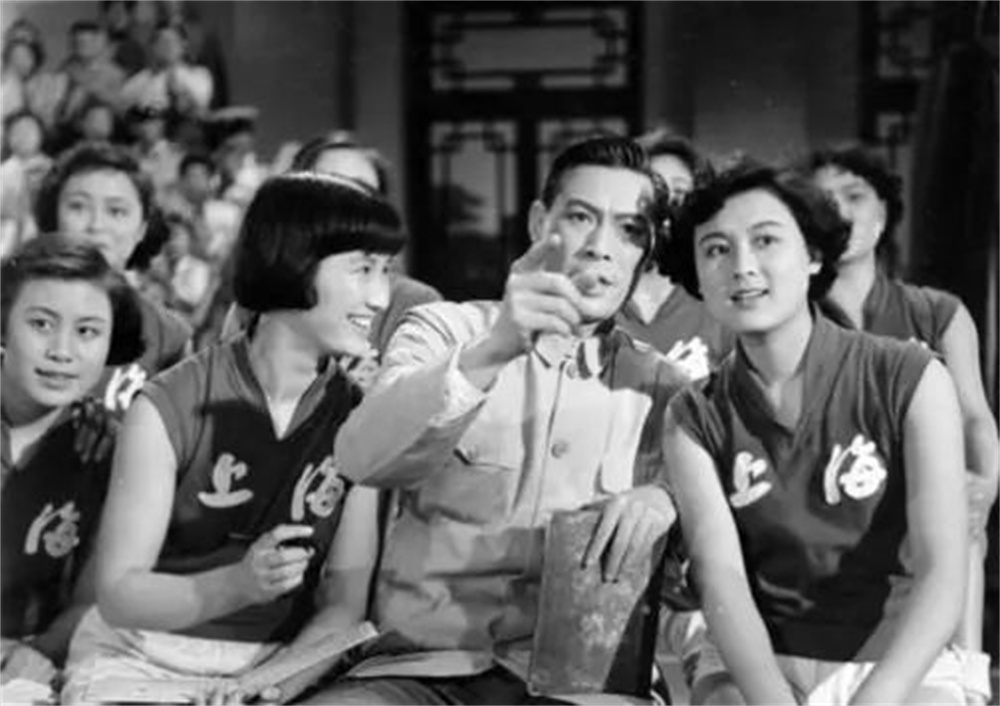
"Women's Basketball No. 5" stills
After "Women's Basketball Team No. 5", Xie Jin also directed two sports-themed movies, namely "Big Li, Xiao Li and Old Li" and the later "Women's Basketball Team No. 9". "Big Li, Xiao Li and Old Li" (1962, original Shanghainese version) tells the story of the transformation process of the union chairman of a Shanghai meat processing factory who never paid attention to sports and opposed sports activities in the factory to being passionate about sports. This sports-themed comedy film is a very rare comedy film in director Xie Jin's career. The tone of the film is lively, positive, healthy and energetic.
"Move forward, move forward. Soldiers have heavy responsibilities, and women have deep grievances. In ancient times, Hua Mulan went to join the army in place of her father, but today there are Detachment of Women carrying guns for the people..." "The Red Detachment of Women" (1961) caused a nationwide sensation after its release. It is recorded that of the 800 million people in the country at that time, 600 million people watched this movie. The story of the film is derived from real historical events that occurred on Hainan Island. It was created by Liang Xin as a film literary script "Qiongdao Hero Flower". Through filmization, director Xie Jin successfully created famous screen images such as Wu Qionghua, Hong Changqing, and Nan Batian, and composed the touching revolutionary spirit of the Detachment of Women. The theme song of the movie became a popular pop song at the time, and the story was later adapted into various versions such as Peking Opera and ballet.
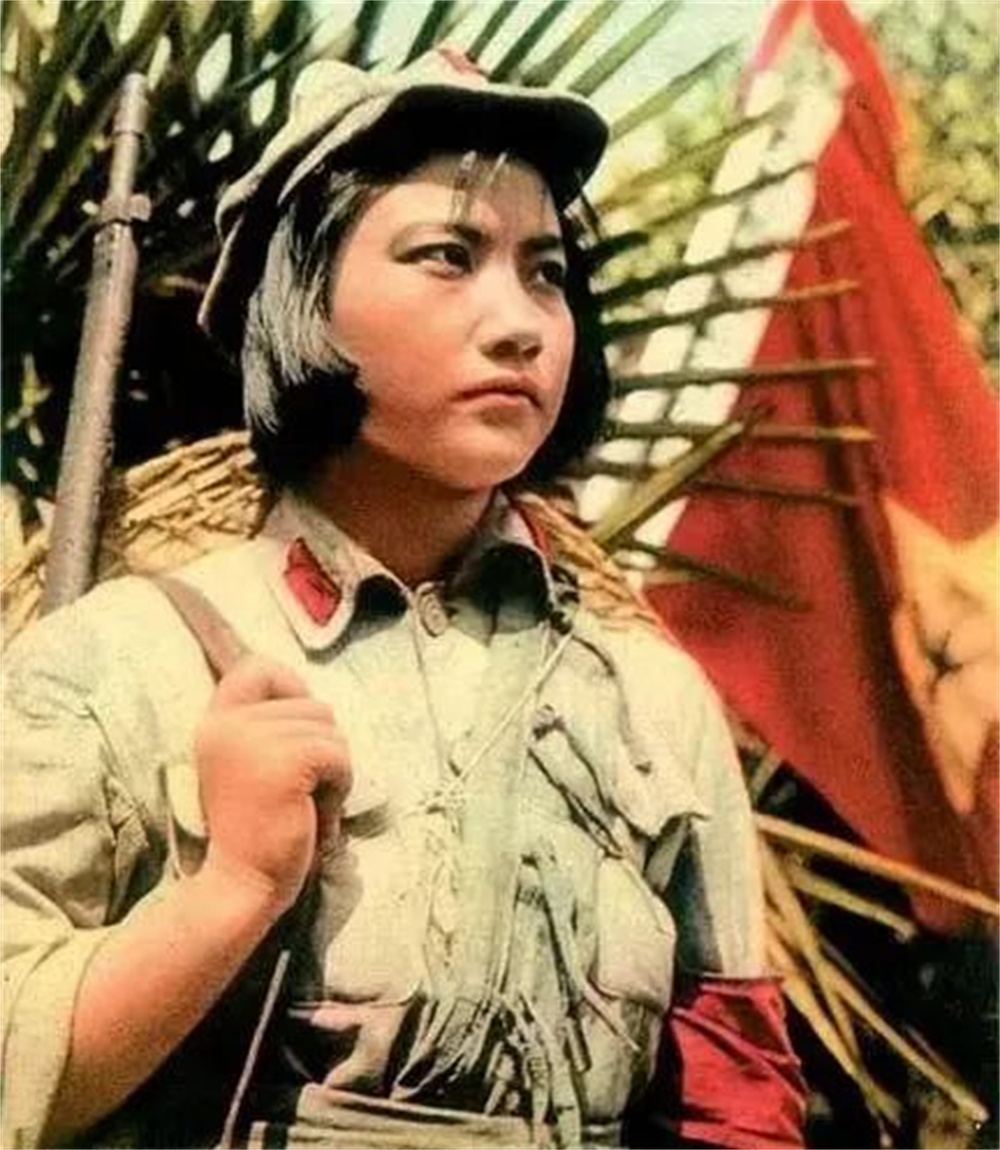
"Red Detachment of Women" stills
In April 1962, "Popular Cinema" announced the list of films that won the first Hundred Flowers Award. "Red Detachment of Women" swept the four awards of the Hundred Flowers Award for Best Feature Film, Best Director, Best Actress, and Best Supporting Actor. , was the biggest winner that year. Guo Moruo wrote a handwritten inscription for Zhu Xijuan, the first Hundred Flowers Best Actress: "From death to life, the east wind blows all over Hainan Island, pouring the blood of heroes, and a Qionghua is exceptionally red."
Xie Jin has lived in Shaoxing, Zhejiang Province since he was a child. He loved watching Caotai Troupe performances in his childhood, and also rehearsed Shaoxing opera during his drama study and practice. "Stage Sisters" (1965) is Xie Jin's closest to his hometown film creation. It is composed by Xie Fang, Cao Yindi, Shangguan Starring Yunzhu. This film tells the story of the miserable lives of Yue Opera artists Zhu Chunhua and Xing Yuehong who were oppressed in the old society, and their liberation and rebirth in the new society. "Being pure and innocent, singing opera seriously" is a well-known classic of this film Lines.
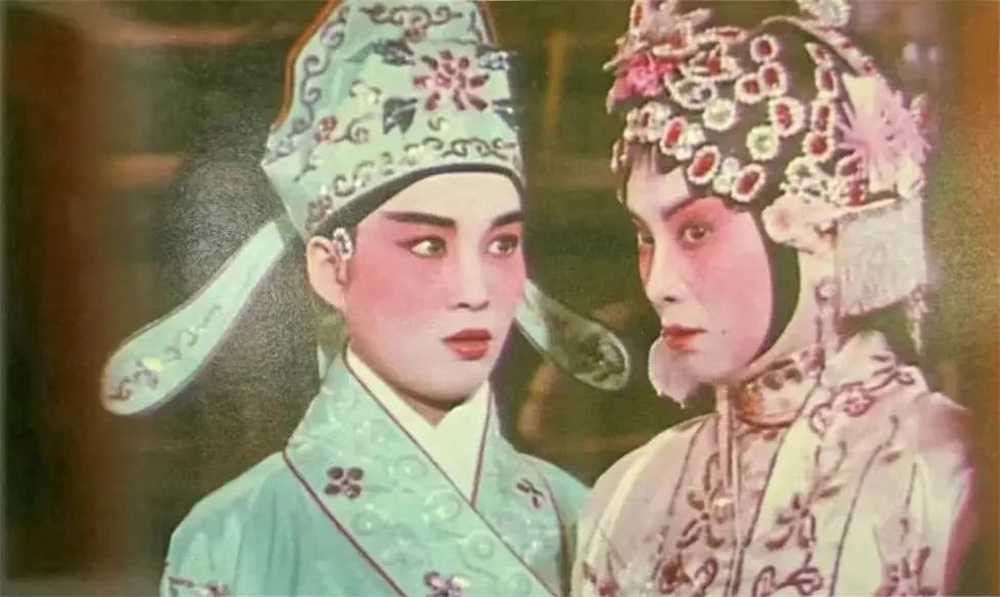
"Stage Sisters" stills
"Women's Basketball Team No. 5", "Red Detachment of Women" and "Stage Sisters" are also known as director Xie Jin's "Women's Trilogy". They create images of women with different identities, different destinies, and different personalities, showing their role in the old era. oppression and the awakening and revolution in the new era. Unfortunately, "Stage Sisters" was affected by the ultra-left environment at the time and did not receive fair evaluation, which also brought Xie Jin's life to a low point. But the brilliance of excellent works cannot be concealed. In the 1980s, "Stage Sisters" won awards at international film festivals such as London and Manila, and won recognition from global audiences and professionals, becoming one of Xie Jin's most prestigious works internationally. .
"Reflection Trilogy" triggered a movie-watching craze, which was also accompanied by discussions and debates
The "Reflection Trilogy" created in the 1980s is also known as the "Scar Trilogy" and is considered the creative peak of director Xie Jin. Xinhua News Agency once wrote an article commenting that "The Legend of Tianyun Mountain, The Wrangler, and Furong Town are Xie Jin's masterpieces. They are full of human nature, human feelings, humanity and reflection on social history. They have not only shocked thousands of people The masses have also moved the world." With the end of the ten years of catastrophe and the convening of the Third Plenary Session of the Eleventh Central Committee of the Communist Party of China, the social life of the people has entered a new era, and various ideological trends have emerged in cultural and artistic works. The films directed by Xie Jin during this period aroused widespread social repercussions and a movie theater craze, and are known as the "Xie Jin film phenomenon."
The movie "The Legend of Tianyun Mountain" (1981) was adapted from the literary work. The writer Lu Yanzhou published the novel in the first issue of the magazine "Qingming" in 1979. It is a representative work in the scar literature trend and won the first prize for the novella of the Chinese Writers Association. . Starring Shi Weijian, Shi Jianlan, Wang Fuli, Zhong Xinghuo, etc., the film aroused nationwide response after its release. In the spring of 1981, the first Golden Rooster Award jury was held in Hangzhou. "Legend of Tianyun Mountain" and "Bashan Night Rain" jointly won the Best Film Award, and also won three awards for Best Director, Best Cinematography, and Best Art. .
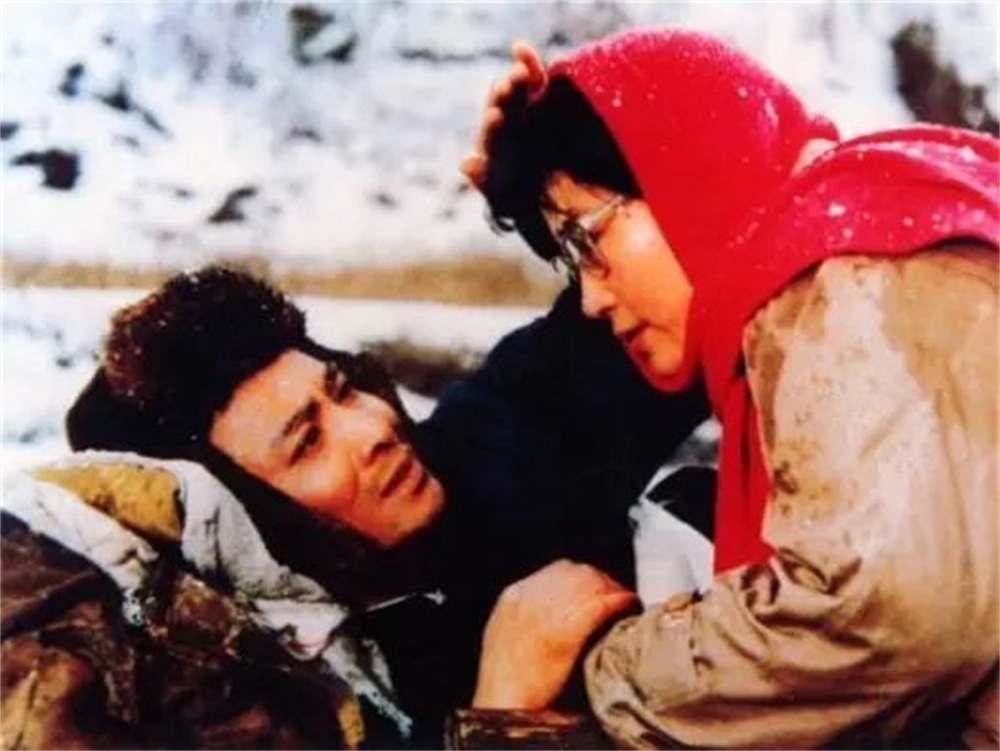
Stills from "Legend of Tianyun Mountain"
The "Wrangler" (1982), which was released shortly after, once again achieved good results at the Golden Rooster Awards, winning Best Supporting Actor and Best Editing. It also won the Hundred Flowers Award for Best Feature Film and Best Supporting Actor. "The Wrangler" is adapted from Zhang Xianliang's novel "Spirit and Flesh", starring Zhu Shimao and Cong Shan. The story tells that Xu Lingjun was labeled as a "rightist" and came to the northwest pastures to work. He received the care and care of the local herdsmen and formed a friendship with the rural girl Li Xiuzhi. Lian Li, times have changed, and he is faced with a choice whether to live in the United States or stay to build the motherland. In an era when movie tickets cost only a dime, according to statistics, the box office of "The Wrangler" reached 100 million yuan, becoming a classic memory for a generation of viewers.
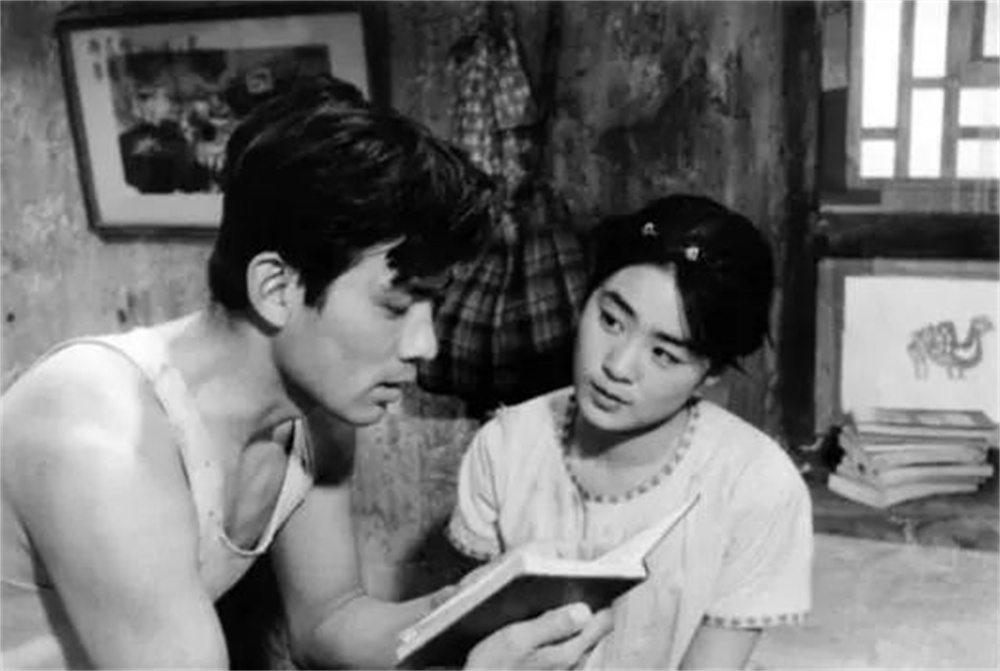
"Wrangler" stills
"If you cherish your passion and cherish it diligently, it will still turn into blue waves when you spill it." "Qiu Jin" (1983) is adapted from Xia Yan's drama "The Legend of Qiu Jin" and Ke Ling's film literary script of the same name. It is said that Xie Jin's grandfather taught with Qiu Jin at Datong Academy in Shaoxing in his early years, and also had a close relationship with Xu Xilin. From "The death of an ancient country more than five thousand years ago" to "Autumn rain and autumn wind are sad and sad", director Xie Jin used Qiu Jin's poems to conceive and run through the film, combining the fearless revolutionary spirit with the profound literati poetic sentiment. The film's box office and impact back then were relatively mediocre, but it was director Xie Jin's creative exploration and inspiration on historical themes and historical figures. It is an underrated work.
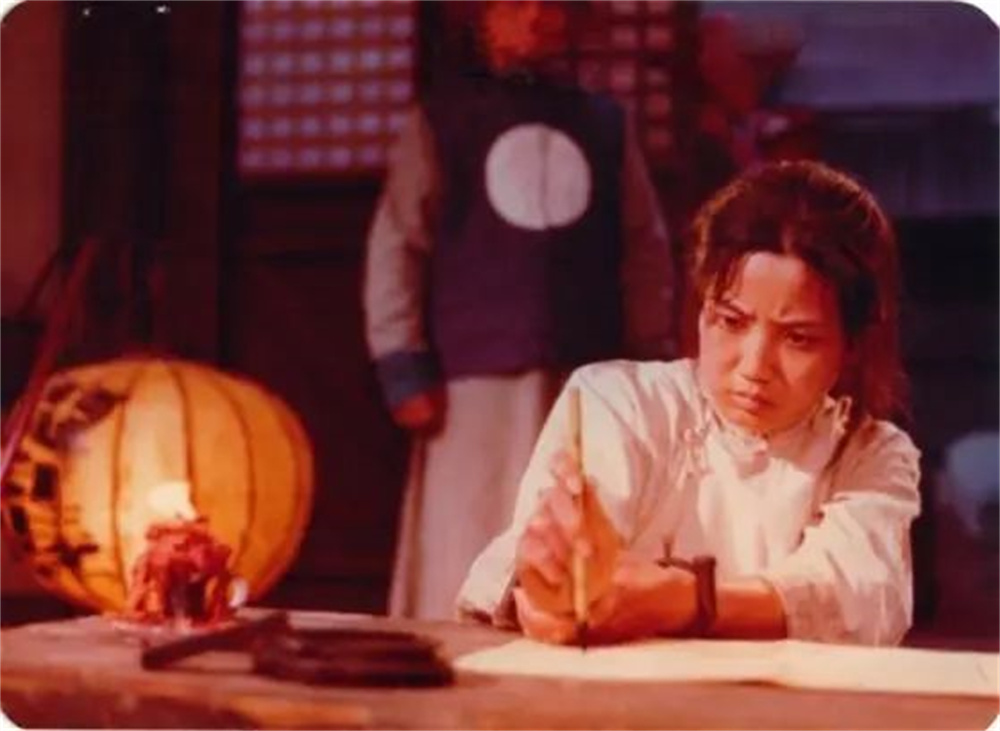
"Qiu Jin" stills
"Garland Under the Mountain" won a total of eight awards including the Hundred Flowers Award for Best Feature Film and the Golden Rooster Award for Best Screenplay; and received ten Golden Rooster Award nominations and five awards, as well as four Hundred Flowers Awards. Expedition to Karlovy Vary and Pali "Hibiscus Town", which also achieved excellent results at the Adolid Film Festival, caused a social sensation after the two films were released, and once again set off the "Xie Jin fever". Liang Sanxi, Zhao Mengsheng, Jin Kailai, Hu Yuyin, Qin Shutian and other deeply rooted screen characters have become unforgettable classic characters in the hearts of a generation of audiences.
Due to the craze caused by director Xie Jin's films in the early to mid-1980s, discussions and debates about Xie Jin's films have emerged one after another. In 1986, Zhu Dake's article "Defects of Xie Jin's Film Model" published in Wenhui Po triggered a fierce debate around Xie Jin's films. Practitioners and researchers in the film industry expressed their opinions and were in tit-for-tat opposition to Xie Jin's films and their social role and value. Today, such discussions are still endless. Every viewing and evaluation of Xie Jin's films is a revisiting and recognition of history, as well as reflection and precipitation of the present.
Beyond the "Xie Jin model", "people" are always his concern
"There is no end to artistic creation. As long as we boldly emancipate our minds and continue to explore and innovate, we will surely be able to produce high-quality, high-level films with Chinese style and Chinese style, and our films will surely be able to be internationally recognized as soon as possible. Unique in the film industry." - Director Xie Jin once spoke at a film seminar. The public controversy once made Xie Jin deep in thought, but it could not stop the creative enthusiasm of this filmmaker who is concerned about the world, reflects on history, and pays attention to the fate of the times and the country. After the "Reflection Trilogy", director Xie Jin successively created "The Last Noble", "Morning Star", "The Bells of Qingliang Temple", "The Old Man and the Dog", "Daughter Valley", "The Opium War" and "Women's Football No. 9".
The film "The Last Noble" (1989) is adapted from Bai Xianyong's short story "The Story of the Banished Immortal", starring Pan Hong, Pu Cunxin and others. The story tells the story of four "noble" ladies who left their motherland for the United States during a period of major historical change in China. More than ten years of ups and downs of fate. The crew went to New York, USA, for filming, and finances were tight. The actors once filmed summer scenes in weather exceeding minus ten degrees. In order to save driver costs, the assistant director from Hong Kong also served as the driver. Although the final film failed to achieve the expected social sensation when it was released, it was still an exploration and innovation of film creation by Director Xie Jin.

Stills from "The Last Noble"
The original work of "The Bells of Qingliang Temple" (1991) was written by Li Xuan in the 1970s, and its original title was "Injustice". The story roughly tells that Aunt Yangjiao raised a Japanese orphan abandoned by the war and sent him to become a monk, named "Ming Jing". Many years later, Ming Jing met his biological mother when he went to Japan for exchanges. Should he stay in Japan or return to China? He has to make his own choice. This is a Sino-Japanese co-production film starring the famous Japanese actor Kurihara Komaki as Oshima Kazuko. The film has a vast layout and profound connotation. Director Xie Jin continues to explore the methods and focus of changing creations, and once again tries to surpass the "Xie Jin model".
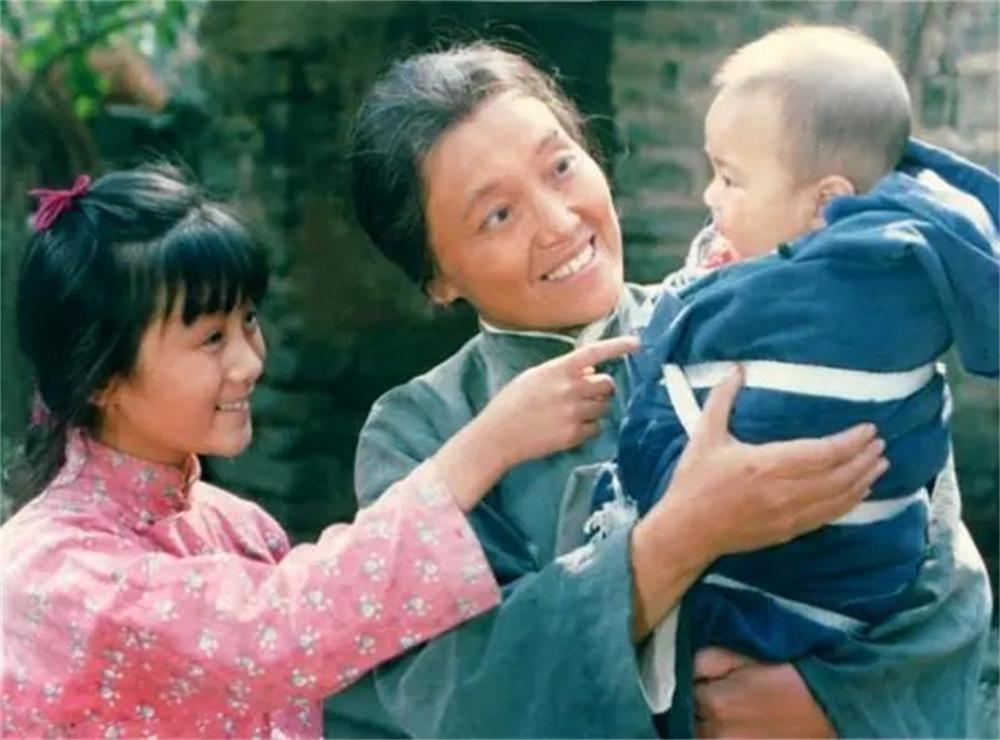
Stills from "The Bells of Qingliang Temple"
As Hong Kong returned to China in 1997, director Xie Jin felt it was his responsibility to make a film of historical significance, and thus "The Opium War" (1997) was released. At that time, this was an unprecedented epic production and the first Chinese film with an investment of more than 100 million yuan. In order to shoot this film, director Xie Jin, who was over 70 years old at the time, mortgaged many of his properties. The film used about 50,000 extras and more than 3,000 foreign actors to create more than 150 scenes to recreate the 1940s. Guangzhou street scene in the 1900s. "Era has Xie Jin, but Xie Jin has no era." Xie Jin's deep concern for the history of his family and country has made the brilliance of Xie Jin's films not only shine in the one hundred years since his birth, but also be reflected in the long river of time.
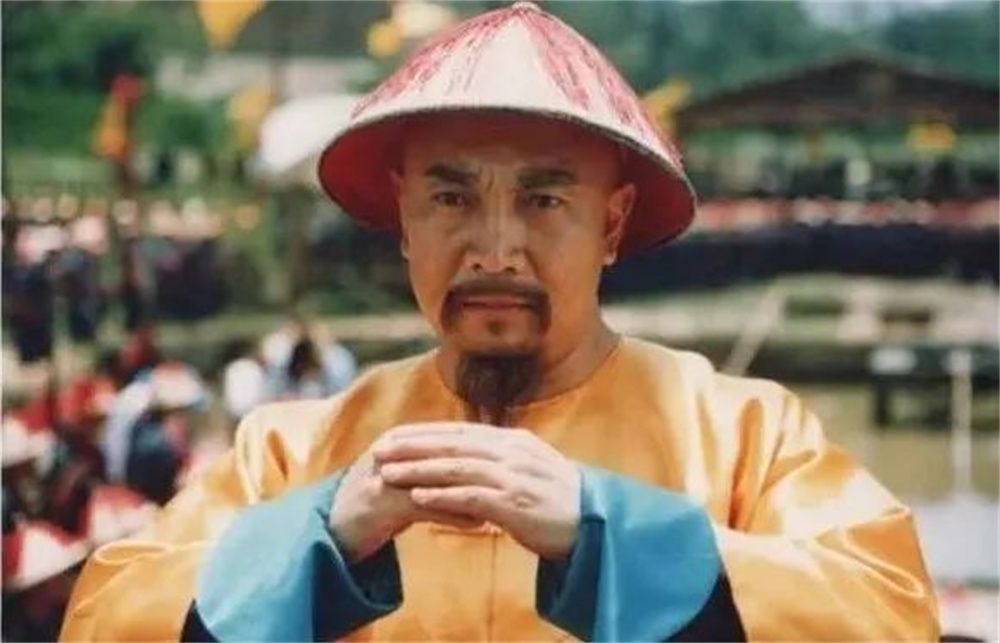
Stills from "The Opium War"
"People" have always been an issue that Xie Jin is concerned about, and it is the core of his film stories. He once said that "film directors use the lens to write dramas, people, and people's souls." The care for people is not only reflected in the drama. In real life, Xie Jin once opened a star school to discover and cultivate talented young actors. His unique vision in casting has brought out outstanding performing artists such as Zhu Xijuan, Chen Chong, Cong Shan, Gake, Zhu Shimao, Jiang Wen, Pu Cunxin, etc. Many filmmakers who have collaborated with Xie Jin are still active on the creative front today.
"Artists must have an innocent heart and a sense of historical worry. They must be like Tai Shigong who wrote "Historical Records", like Qu Yuan, Sima Qian, Du Fu, Cao Xueqin, and even the contemporary Ba Jin, who are full of a sense of responsibility and worry for the nation. , a sense of mission." It is with this awareness and understanding that Director Xie Jin left not only a film for history, but also a humanistic and artistic spirit and historical social responsibility worth inheriting.


